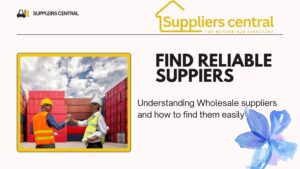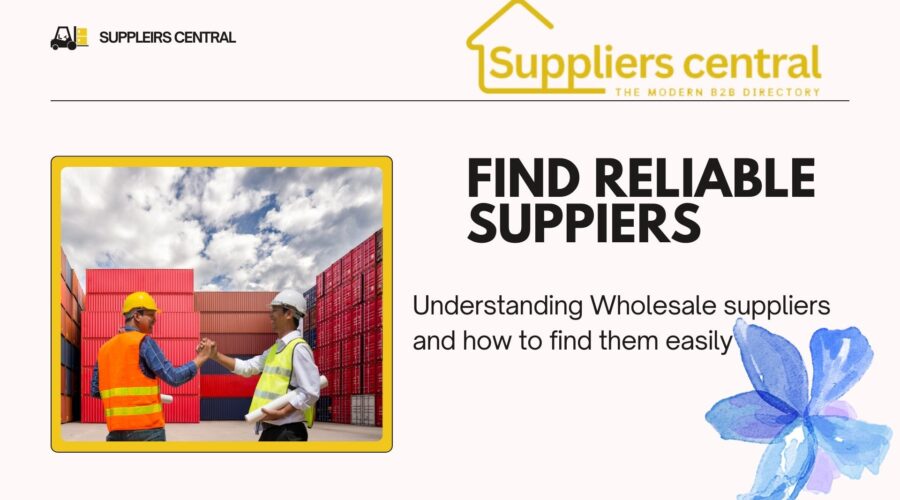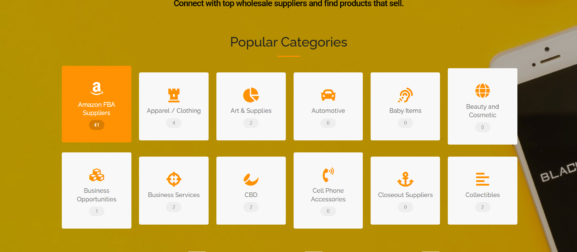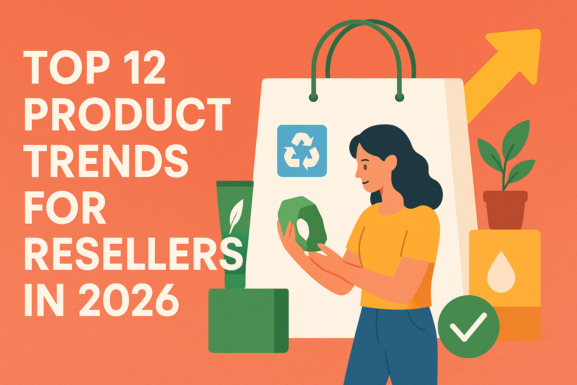How to find Real and best B2B directory for your wholesale business ?
How to find Real and best B2B directory for your wholesale business ?

B2B Directories for Wholesalers: A Real Wholesaler’s Guide to Finding Reliable Suppliers
Hey there, fellow wholesaler! If you’re reading this, you’re probably tired of the same old struggles
spending hours on Google searching for suppliers, getting stuck with middlemen, or worse, dealing with shady vendors who vanish after your first order. I’ve been there. A few years ago, I was running a small wholesale business for home goods, and I was so frustrated. I’d call suppliers, only to find out they didn’t even ship to my state. Or they’d quote prices that were way higher than what I’d seen online. It felt like everyone was hiding something. Then I stumbled onto something that changed everything: a B2B directory made specifically for wholesalers. No fluff, no random retailers, just real suppliers who actually want to work with businesses like mine.
Let me tell you a story. A few months back, I met Sarah at a local trade show. She runs a wholesale clothing business out of Austin, Texas. She was complaining about how hard it was to find sustainable fabric suppliers. “I’d Google ‘wholesale fabric,’ and all I got was retail stores selling single yards,” she said. Then she showed me how she used a niche B2B directory that filtered for “organic cotton suppliers with MOQs under 500 units.” Within a week, she had three new suppliers lined up. Her profit margins went up 15% because she cut out the middleman. That’s the power of the right directory if you know how to use it 🙂
Why Generic Search Engines Are a Waste of Time for Wholesalers?
Let’s be real: Google is great for finding coffee shops or vacation rentals, but it’s terrible for wholesale. When you type “wholesale suppliers,” you get a mess of dropshipping sites, affiliate marketing blogs, and random e-commerce stores trying to sell you a “wholesale starter kit” (spoiler: those are scams). Even if you find a supplier, you’ll spend hours digging through their site to figure out if they even do wholesale. Do they have a minimum order? Do they ship to your state? What’s their lead time? Most don’t even list that stuff upfront.
I learned this the hard way. Once, I spent two weeks trying to find a supplier for reusable food containers. I called 12 companies, and half of them didn’t even know what MOQ meant. One guy said, “We sell to retail stores, but we’ll do a special order for you if you pay double.” Ugh. That’s why specialized B2B directories are a very Important . they cut the noise. Instead of sifting through 500 irrelevant results, you get a clean list of suppliers who already work with businesses like yours.
What Makes a B2B Directory Actually Useful for Wholesalers?
Not all directories are created equal. Some are just glorified yellow pages with outdated listings. Here’s what I look for now (and what I wish I’d known earlier):
1. Industry-Specific Filters: If you’re in food, furniture, or electronics, you need a directory that lets you filter by niche. A general “wholesale directory” might list everything from agricultural equipment to jewelry, but that’s useless if you’re only selling skincare products.
2. Verified Suppliers: I’ve been burned before by suppliers who lied about certifications. Now I only use directories that verify businesses like checking if they’re registered with the Better Business Bureau or have real customer reviews. One directory I use even requires suppliers to submit tax IDs before listing. No more fly-by-night operations.
3. Transparency on MOQs and Shipping: If a supplier says “contact for pricing,” I’m out. Good directories show minimum order quantities, shipping costs, and lead times upfront. No more guessing games.
4. Mobile-Friendly Listings: Most buyers are on their phones these days. If a directory looks like a 1990s website on your phone, skip it. I’ve lost orders before because a supplier’s listing was impossible to read on mobile.
Real Talk: How to Spot a Scam Directory (Before You Get Ripped Off)
I’ll tell you a secret: most B2B directories are free to join, but the shady ones charge you for “premium features” or “guaranteed leads.” Here’s how to avoid them:
– If they ask for your credit card before you see the directory, run. Legit directories let you browse listings for free first.
– Check reviews on Trustpilot or Reddit. I found a directory called “WholesaleHub” that had 4.2 stars on Trustpilot, but when I dug deeper, I saw comments like “They promised 100 leads a month but sent me 3 fake ones.”
– Look for a physical address and phone number. If their contact page just has a “contact us” form and no real address, that’s a red flag.
One time, I almost signed up for a directory that charged $299/month for “exclusive access.” I called their “support line” (which was just a voicemail), and when I left a message, they never called back. Lesson learned: if it sounds too good to be true, it is.
My Step-by-Step Guide to Optimizing Your Directory Profile on Supplierscenral.com
Okay, so you found a good directory now what? Don’t just copy-paste your website info and call it a day. Here’s how I make sure my listings stand out:
2. Add Photos That Show Your Product in Action: Not just studio shots. A photo of your product being used by a restaurant owner or a retailer on a shelf? That builds trust. I once got a $10k order because a buyer saw a photo of my coffee mugs in a cozy café.
3. List Certifications and Awards: If you’re FDA-approved, have a sustainability certificate, or won a “Best Supplier” award, say it. Buyers care.
4. Update Your Inventory Weekly: I’ve had buyers cancel orders because my listing said I had 1,000 units of a product, but it was actually sold out. Update your stock in real-time—your future self will thank you.
5. Respond Within 24 Hours: I once had a buyer ask a question at 10 PM. I replied at 8 AM the next day. They placed an order that same afternoon. Speed matters.
The “Wholesale Central” Myth (And What It Really Means)
You’ve probably heard of “Wholesale Central” as some magical hub for all wholesale needs. Truth? There’s no single “Wholesale Central.” But there are directories that act like one for your niche. For example:
– If you’re in food, FoodTrade Connect is a gem. It’s got real-time inventory updates and lets you filter by USDA certifications.
– For industrial parts, IndustriParts Direct has a “certifications” tab so you can instantly see if a supplier meets OSHA standards.
– For fashion, StyleWholesale lets you see what retailers are buying from each supplier so you know who’s actually moving product.
I’ve used all three, and they’ve saved me hundreds of hours. But here’s the kicker: you have to use them right. Don’t just list your product and wait. Check the directory daily for new leads, join their forums, and ask questions. I’ve made some of my best connections by commenting on supplier posts and building relationships before even placing an order.
How to Handle Slow Responses (Because It Happens)
Let’s say you’ve found a supplier you like, but they’re not responding. I used to get so frustrated—I’d send 3 emails and give up. Now I do this:
– Send a polite follow-up after 48 hours: “Hi [Name], just checking if you saw my message about the bamboo cutting boards. Happy to jump on a quick call if that’s easier!”
– If they still don’t reply, move on. No hard feelings. But if they do respond, ask for references. I once had a supplier claim they’d been in business for 10 years, but when I asked for a client reference, they couldn’t give me one. Big red flag.
The Future of B2B Directories (And Why You Shouldn’t Wait)
I’ve heard some people say AI will replace all this. Maybe, but don’t wait for it. Right now, the best directories are still run by humans who actually care about helping wholesalers. For example, a new feature I love is “demand alerts”—it tells you when a buyer in your area is searching for your product. Last month, I got a notification that a restaurant chain in Chicago was looking for eco-friendly food containers. I reached out, and now they’re a repeat customer.
But here’s the truth: technology is just a tool. The real magic happens when you use it. I’ve seen wholesalers who ignore directories and just rely on cold calls—they’re struggling. Meanwhile, the ones who treat directories like a daily habit? They’re growing 20% year over year.
Final Thoughts: Start Today, Not Tomorrow
Look, I get it. You’re busy. But spending 30 minutes finding a solid directory Like supplierscentral could save you weeks of wasted time. Start small: pick one directory that fits your niche, optimize your listing, and check it twice a week. You’ll be surprised how many leads come through.



